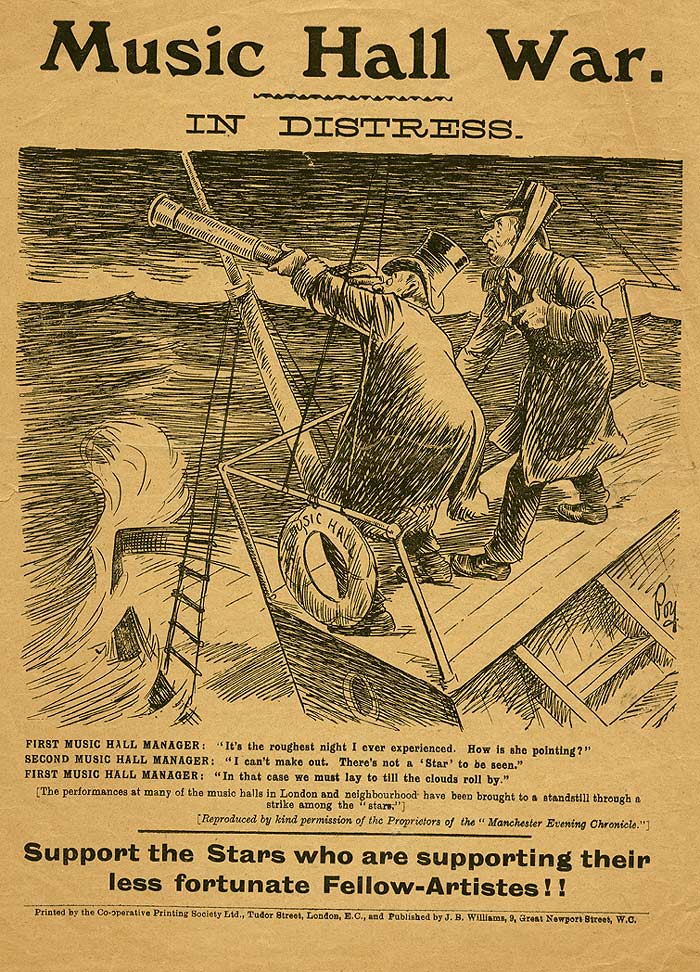|
Alfred Maltby
Alfred Maltby (c. 1842 – 12 February 1901) was an English actor, costume designer, playwright and columnist. He began his theatrical career in 1872, becoming a much sought-after costume designer in the West End theatre, West End. By 1875 he began to write comic plays, which were successfully staged. Persuaded to take a role in one of his own pieces in 1876 he also began an acting career in which he specialised in playing comic, eccentric and usually elderly characters, for which portrayals he also earned enthusiastic reviews. Maltby had a long and fruitful association with the actor-manager Charles Wyndham (actor), Charles Wyndham, becoming a regular member of his company at the Criterion Theatre in London. Outside the West End, Maltby toured in the British provinces and in Australia and New Zealand, maintaining simultaneous acting, designing and writing careers, and sometimes directing. He appeared in several of the first British productions of French farces by Alfred Hennequin a ... [...More Info...] [...Related Items...] OR: [Wikipedia] [Google] [Baidu] |
Holborn Empire
Weston's Music Hall was a music hall and theatre that opened on 16 November 1857 at 242-245 High Holborn in London, England. In 1906, the theatre became known as the Holborn Empire. History Early years The theatre was constructed on the site of the ''Six Cans and Punch Bowl Tavern''. Edward Weston, nephew of the previous licensee of the pub, bought the former Holborn National Schoolrooms immediately behind the pub and rebuilt it as a music hall in six months. This purpose built hall was his response to the success of Charles Morton's Canterbury Music Hall in Lambeth. In 1861, Morton struck back by opening the Oxford Music Hall, nearby in Oxford Street; a development Weston opposed on the grounds there were already too many music halls in the area.Weston's Music Hall, at Arthur Lloyd music hall history 31 Mar ... [...More Info...] [...Related Items...] OR: [Wikipedia] [Google] [Baidu] |
Hervé (composer)
Louis-Auguste Florimond Ronger (30 June 1825 – 4 November 1892), who used the pseudonym Hervé (), was a French singer, composer, librettist, conductor and scene painter, whom Ernest Newman, following Reynaldo Hahn, credited with inventing the genre of operetta in Paris. Life Hervé was born in Houdain near Arras. Part Spanish by birth, he became a choirboy at the Church of Saint-Roch, Paris. His musical promise was noted, and he was enrolled in the Conservatoire and studied with Daniel Auber, and by the age of fifteen was serving as organist at Bicêtre Hospital and a stage vocalist in provincial theatres, where he trained his fine tenor voice. He won a competition in 1845 for the prestigious Paris post of organist at the Church of Saint-Eustache, while he doubled with his theatrical music career, a situation that he turned to advantage years later, in his most famous work, ''Mam'zelle Nitouche''. Before he became musical director of the Théâtre du Palais Royal in 1851 ... [...More Info...] [...Related Items...] OR: [Wikipedia] [Google] [Baidu] |
The Sketch
''The Sketch'' was a British illustrated weekly journal. It ran for 2,989 issues between 1 February 1893 and 17 June 1959. It was published by the Illustrated London News Company and was primarily a society magazine with regular features on royalty, aristocracy and high society, as well as theatre, cinema and the arts. It had a high photographic content with many studies of society ladies and their children as well as regular layouts of point to point racing meetings and similar events. Clement Shorter and William Ingram started ''The Sketch'' in 1893. Shorter was the first editor, from 1893 to 1900, succeeded by John Latey (until his death in 1902) and then Keble Howard.Philip Waller, ''Writers, Readers, and Reputations: Literary Life in Britain 1870–1918'', pp. 351–2 Bruce Ingram was editor from 1905 to 1946. The magazine is remembered for first publishing the illustrations of Bonzo the dog by George E. Studdy (from 1921). It featured series of short stories within ... [...More Info...] [...Related Items...] OR: [Wikipedia] [Google] [Baidu] |
Bébé (play)
''Bébé'' (Baby) is a three-act comedy by the playwrights Émile de Najac and Alfred Hennequin, first performed in Paris in 1877. It depicts the amorous affairs of an indulged scion of the aristocracy, encouraged by his eccentric tutor. The play opened at the Théâtre du Gymnase on 10 March 1877, and ran for 214 performances. English versions, heavily bowdlerised, were presented in New York in 1877 and London in 1879. Background and first production By the 1870s Émile de Najac and Alfred Hennequin were established writers for the Parisian stage. Both were used to writing in partnership with co-authors, but this was the first time they worked together. Hennequin had recently enjoyed two considerable successes with '' Le Procès Veauradieux'' (1875) and '' Les Dominos roses'' (1876), both written with Alfred Delacour. ''Bébé'' was presented at the Théâtre du Gymnase on 10 March 1877, and ran for 214 performances,Noël and Stoullig (1878), p. 334 a considerable run at a ti ... [...More Info...] [...Related Items...] OR: [Wikipedia] [Google] [Baidu] |
